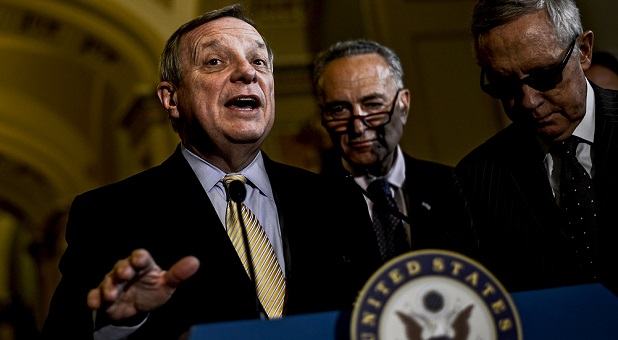Stung By Backlash, Democrats Scramble to Fix Obamacare ‘Cadillac Tax’
U.S. Democratic lawmakers are discussing proposing changes to the “Cadillac tax,” a levy on high-cost employer-based healthcare plans passed as part of President Barack Obama’s 2010 Affordable Care Act, the Senate’s No. 2 Democrat said on Tuesday.
“I’m not proposing eliminating it at this point, I’m open to suggestions for changing it,” Illinois Senator Dick Durbin told reporters.
“I don’t know if it’ll be done this year or next year,” Durbin added. “But we’re trying to figure out a way to change it or remove it and the impact it would have.”
The tax got its nickname because it will apply to premium or “Cadillac” healthcare plans starting in 2018. It would be levied on employer-based coverage that exceeds the thresholds of $10,200 a year for individuals and $27,500 for families.
It was designed to rein in healthcare costs under Obama’s healthcare law. Employers could avoid it by replacing expensive plans with cheaper ones.
Congressional Republicans have long sought to repeal the entire Affordable Care Act, also known as Obamacare. Democrats have generally defended the act. But the looming Cadillac tax has grown increasingly unpopular, in part because labor unions say it could encourage employers to cut back on their health insurance plans for workers.
Earlier this autumn, the Democratic front-runner for president, Hillary Clinton, broke with the Obama administration to call for a repeal of the tax. She said the estimated $87 billion in lost revenue from repeal would be offset by her healthcare reform plans.
The leading Senate Democrat, Harry Reid of Nevada, has also said he supports a fix to the Cadillac tax.
The White House on Monday defended the tax, saying it gives employers with high-cost plans an incentive to make the plans more efficient.
But speaking at a news briefing, spokesman Josh Earnest did not rule out changes to the Cadillac tax.
“This law does not take effect until 2018. So we’ll be able to evaluate exactly how it would go into effect. And if in that intervening time there are ideas that are put forward that will strengthen the law, then we’re open to a conversation about that,” Earnest said.
Durbin told reporters on Tuesday that “nobody has a clue” among congressional Democrats how the $87 billion in lost revenue from the tax could be replaced. {eoa}
(Reporting by Susan Cornwell; Additional reporting by Jeff Mason; Editing by Peter Cooney)
©2015 Thomson Reuters. All Rights Reserved.
















































